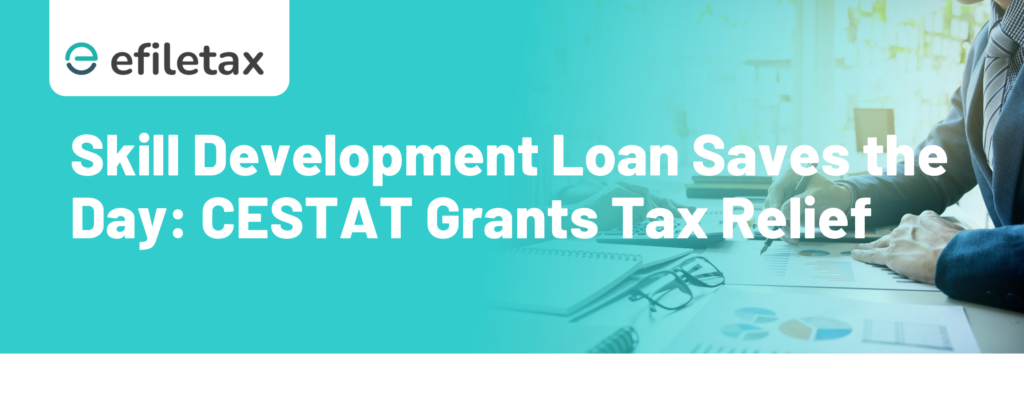
Intro Paragraph:
The ruling clarified how loan funds used for charitable purposes and the nature of training provided can influence tax liability and exemptions under GST.
What Was the Issue?
A registered trust engaged in skill development activities received a demand from the department alleging that their services were commercial in nature and not eligible for GST exemption.
The core allegations were:
- Training provided was not charitable under the GST framework.
- The trust received funding via a loan, allegedly not used solely for exempted purposes.
Tribunal’s Key Findings
The CESTAT (Customs, Excise and Service Tax Appellate Tribunal) made several observations in favour of the appellant:
- The Tribunal held that source of funding isn’t decisive; the end use matters.
- Notification No. 12/2017-CT(R): Services by entities registered under Section 12AA of the Income Tax Act for charitable purposes (including advancement of education) are exempt. The Tribunal upheld that the training qualified under this clause.
- No unjust enrichment: The trust didn’t collect GST from students, indicating genuine exemption eligibility.
Legal References & Clarifications
- Notification No. 12/2017-CT(R) – Entry 66 exempts services provided by an entity registered under Section 12AA of the Income Tax Act, 1961 when imparting education or skill development.
- Section 12AA, Income Tax Act – Registration provision for charitable trusts.
- Case Reference: CESTAT Final Order No. 40624/2024 dated 23.04.2024 (Reported via TaxManagementIndia)
Practical Takeaways for Taxpayers
- Charitable trusts must ensure the purpose of the activity, not just the mode of funding, aligns with exempted service conditions.
- Maintain documentary evidence of training curriculum, funding utilisation, and beneficiaries.
Expert View
“Tribunal rightly focused on substance over form — it’s not about how the funds came in, but where they went. This sets a useful precedent for many registered trusts and NGOs facing scrutiny,” says Raghav Menon, Indirect Tax Consultant at Efiletax.
Summary (For Google Snippet)
CESTAT ruled in favour of a skill development trust, holding that GST exemption applies if activities align with charitable purposes — even if funded via loans. Purpose of use prevails over source of funds.
FAQ
Q1: Is GST applicable on government-sponsored skill development training?
If provided by a 12AA registered trust, such services are exempt under Notification No. 12/2017-CT(R).
Q2: Does taking a loan impact GST exemption eligibility?
No, as long as the loan is used for exempt purposes like education or skill development.
Q3: What proof is needed to support exemption claims?
Trust registration certificate, funding utilisation reports, training curriculum, and proof of beneficiaries.
Closing CTA:
Facing a GST demand on educational or charitable activities?
Connect with Efiletax to assess your eligibility and defend your case professionally.